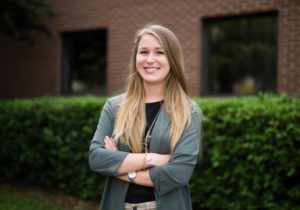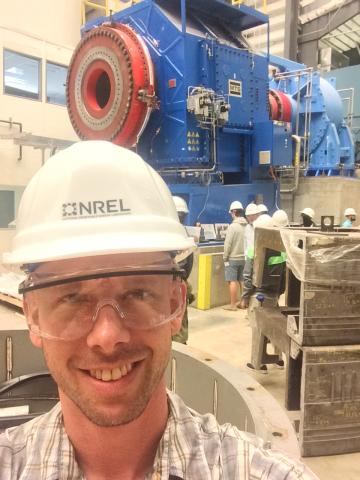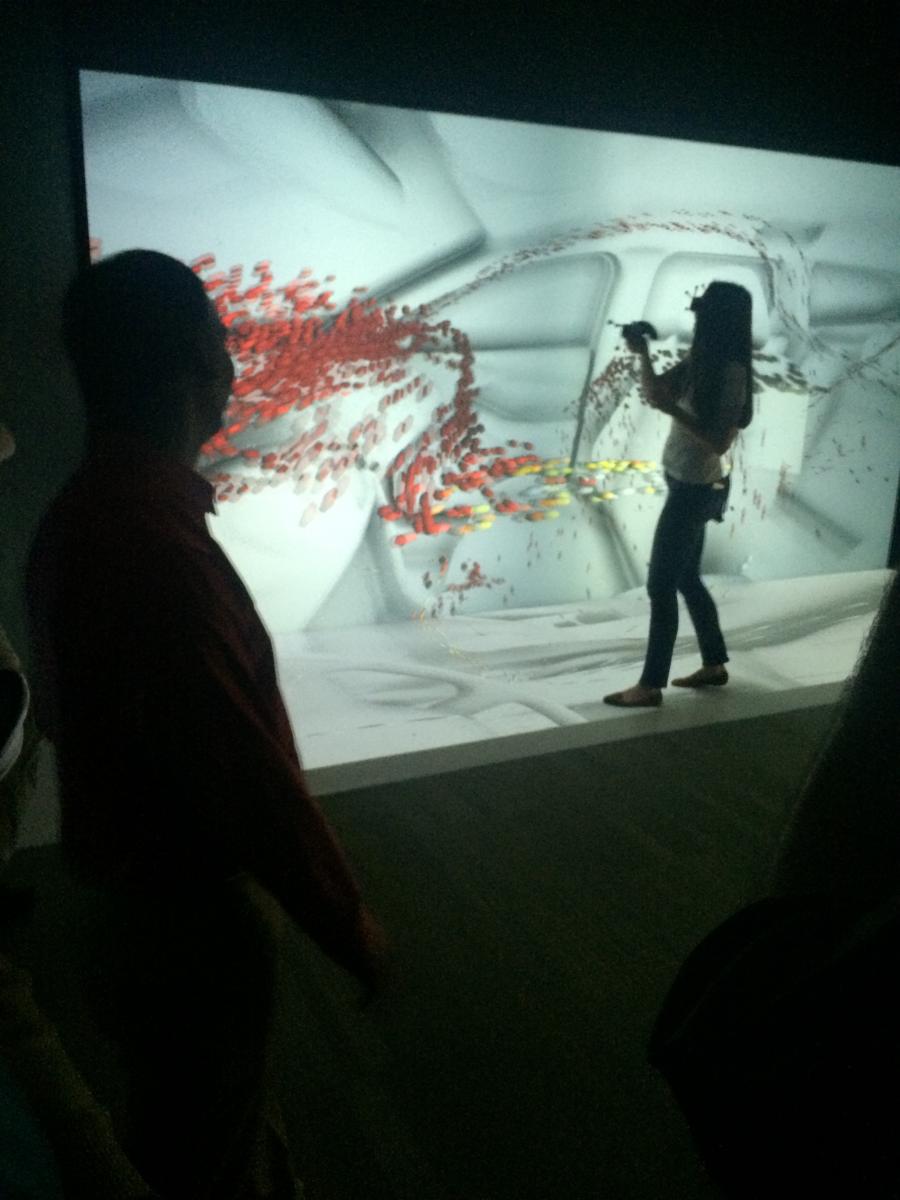

Hannah Hollinger
- June 13, 2016
- 10:55 am
GEARED student takes a glimpse at the future visiting NREL
The Grid Engineering for Accelerated Renewable Energy Deployment (GEARED) program works to educate aspiring professionals in the future of energy utility by hosting various university representatives in Student Innovation Board charters. Mathew Coalson, one of Sustainability Initiatives’ own, sits on the Foundations for Engineering Education for Distributed Energy Resources (FEEDER) Consortium, and was granted the opportunity to explore the National Renewable Energy Laboratory (NREL) earlier this month. Coalson is majoring in Mechanical Engineering with a focus on materials, and is interested in working at the intersection of micro and utility storage. We sat down to ask him about his exciting experience at NREL:
Q: Why did you visit NREL?
A: It was an opportunity to see one of the most advanced research facilities for renewable energy in the world. We saw German wind turbines being tested, yellow school buses converted to electric, and lots of other amazing things. I would have made the trip on my own but, because I was part of the GEARED program here at UCF, my trip was sponsored.

Q: What did you learn during your visit?
A: There are many challenges associated with moving the grid to a majority renewable energy. Our grid simply is not made for lots of people generating their own power. However, there are lots of reasons to be enthusiastic. People at NREL are developing technologies in collaboration with utilities, private companies, and governments. They are looking at moonshot technologies like floating wind turbines that can be easily deployed in oceans. And they are looking at fundamental technologies like inverters that will let most of our energy come from homeowners generating their own solar energy.

Q: How can you utilize what you learned at NREL at UCF and in the community?
A: I am working with my colleagues on a project right now that will utilize what I learned. We are looking into affordable ways to install solar energy for a well in Jamaica. I’m hoping to develop the knowledge I started to learn in Colorado through practical application.
Q: What does the future look like with NREL’s research?
A: Generating and transmitting energy is the biggest polluter that there is, but a world without electricity is pretty much unimaginable. NREL is answering the hard questions about transitioning to a world powered without producing tons and tons of CO2. So, what does the future look like at NREL? Busy, because there is a great amount of work to create the technologies that let us have a clean energy future.
Q: Would you visit again?
A: I’d live there if I could.